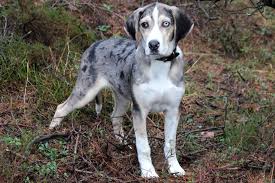
Dunker
Conditions of detention
Dunkers are adaptable but thrive best in rural or suburban environments where they have space to roam. They need a secure yard and plenty of exercise. While they can adapt to apartment living, this requires a significant commitment to regular exercise.
Useful Fact: Dunkers do well in active households where they can participate in outdoor activities such as hiking and running.
Nutrition and diet
A balanced diet with high-quality dog food is essential for the Dunker’s health. Their diet should be tailored to their age, size, and activity level, with a focus on protein and essential nutrients. Fresh water should always be available.
Useful Fact: Regularly monitoring their weight and adjusting their diet as needed helps prevent obesity, a common issue in many active breeds.
Health
Dunkers are generally healthy dogs, but they can be prone to certain genetic conditions like hip dysplasia and ear infections. Regular veterinary check-ups and maintaining a healthy lifestyle are essential.
Useful Fact: Due to their floppy ears, regular ear cleaning is important to prevent infections.
Grooming and care
Dunkers have a short, dense coat that is easy to maintain. Weekly brushing is sufficient to keep their coat healthy and clean. Their coat typically comes in various color combinations, including black, white, and tan.
Useful Fact: Dunkers shed moderately, so more frequent brushing during shedding seasons can help manage loose hair.
Education and training
Dunkers are intelligent and eager to please, making them relatively easy to train. Positive reinforcement methods, such as treats and praise, work best. Early training and socialization are crucial to develop good behavior and obedience.
Useful Fact: These hounds have a strong prey drive, so recall training is particularly important for their safety.
Toys and entertainment
Dunkers need plenty of mental and physical stimulation. Interactive toys, puzzle toys, and activities that challenge their hunting instincts, such as scent trails or fetch games, are ideal.
Useful Fact: Rotating toys regularly can help keep a Dunker engaged and prevent boredom.
Safety
Due to their strong hunting instincts, it’s crucial to keep Dunkers in a secure, fenced area when outside. They should always be on a leash when not in a confined space to prevent them from wandering off in pursuit of small animals.
Useful Fact: Microchipping your Dunker can help ensure they are returned to you if they ever get lost.
Accessories
Dunkers benefit from durable accessories, including collars, leashes, and harnesses. Given their active nature, investing in high-quality gear is important for their safety and comfort.
Useful Fact: A sturdy, comfortable bed is essential for their rest and recovery after a day of activity.
Socialization
Early and consistent socialization is key to developing a well-rounded Dunker. Expose them to different people, environments, and other animals to ensure they grow up to be confident and well-mannered.
Useful Fact: Puppy classes can be an excellent way to start socialization and training in a controlled environment.
Travel and Transportation
Dunkers are generally good travelers if they are introduced to it gradually and positively. They should be secured in a travel crate or with a dog seat belt harness when in a vehicle to ensure their safety.
Useful Fact: Frequent breaks during long trips are important to allow them to stretch, hydrate, and relieve themselves.
Behavior and psychology
Dunkers are known for their loyalty, intelligence, and affectionate nature. They form strong bonds with their families and are excellent with children. They can be independent but are generally friendly and sociable dogs.
Useful Fact: Consistent routines and positive reinforcement help foster a sense of security and well-being in Dunkers.
Legal aspects
In some areas, owning a Dunker may require registration with local authorities or kennel clubs. It’s important to be aware of and comply with any breed-specific legislation in your area.
Useful Fact: Keeping your dog’s vaccinations and licenses up to date is crucial for legal compliance and their health.


